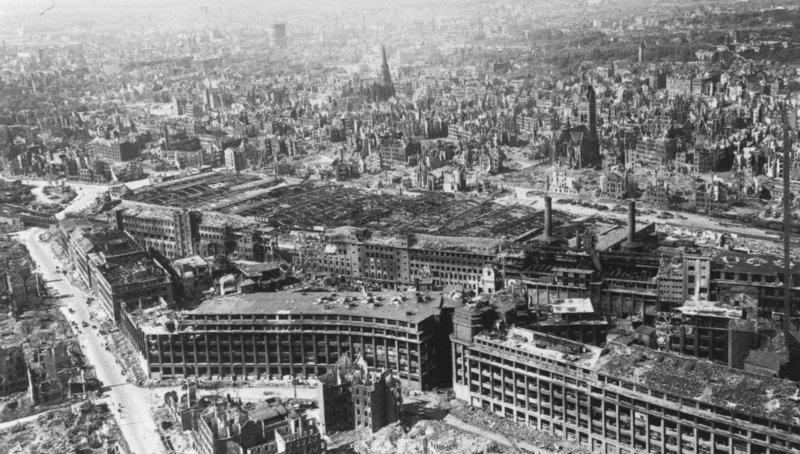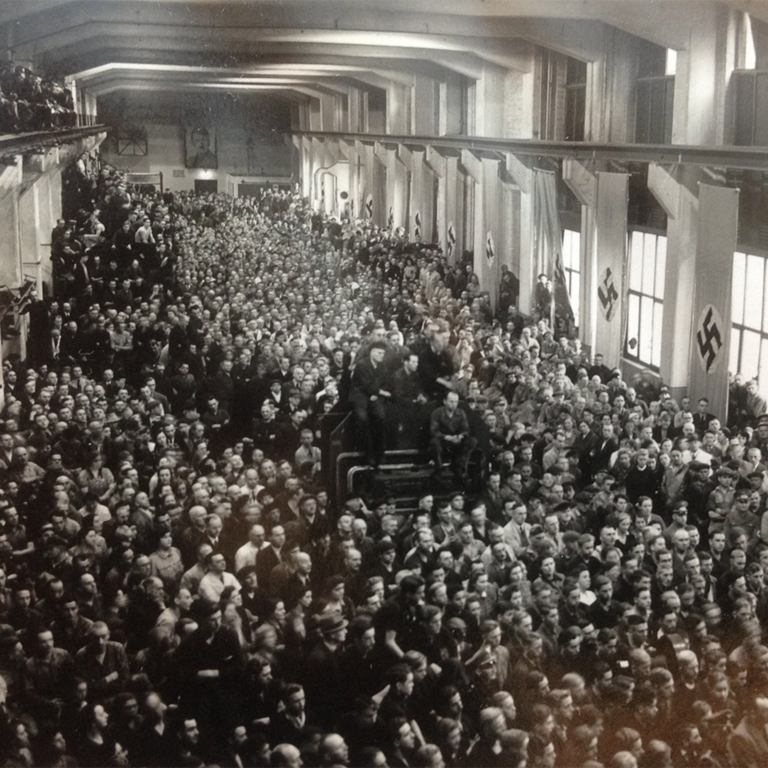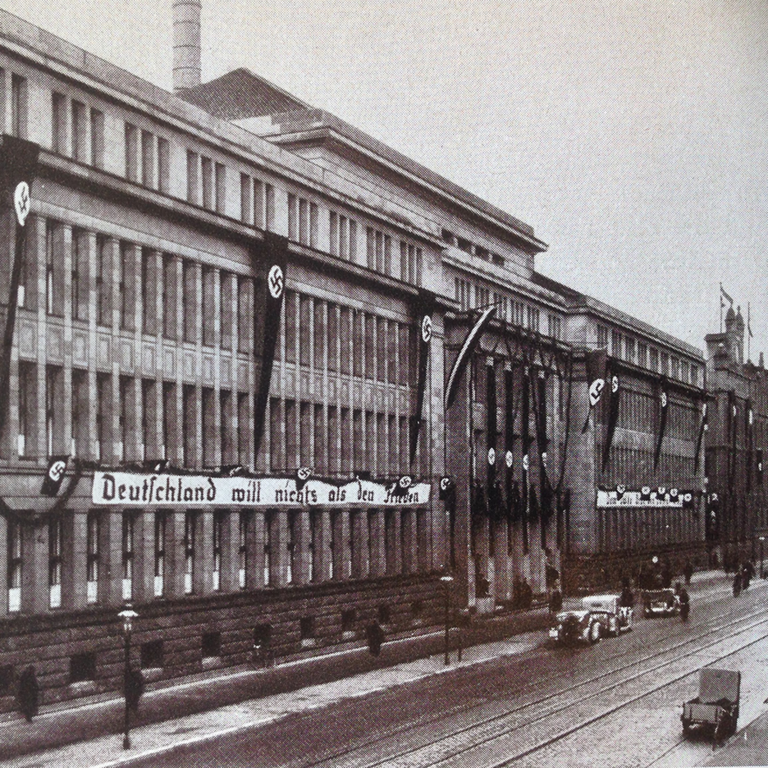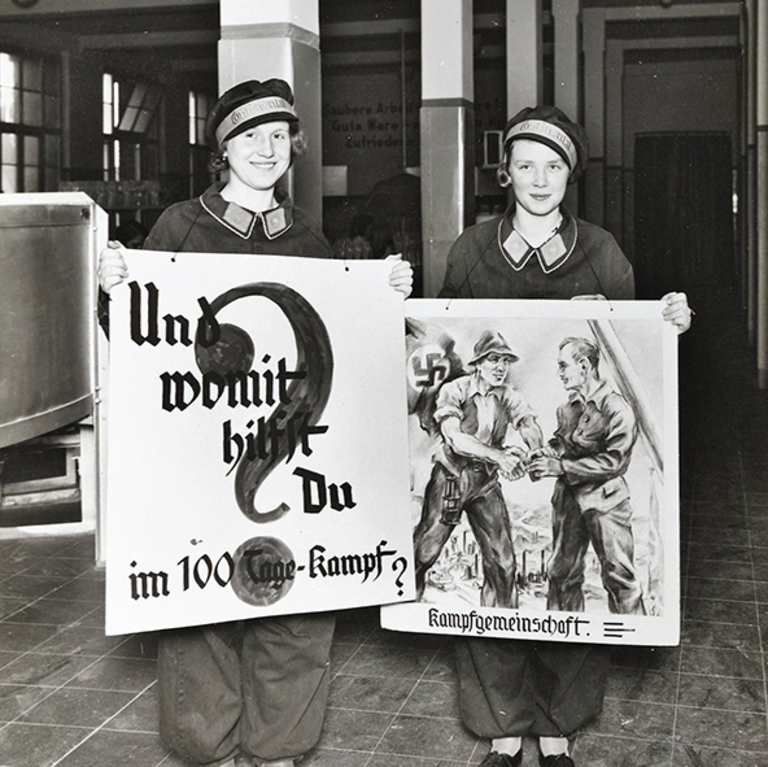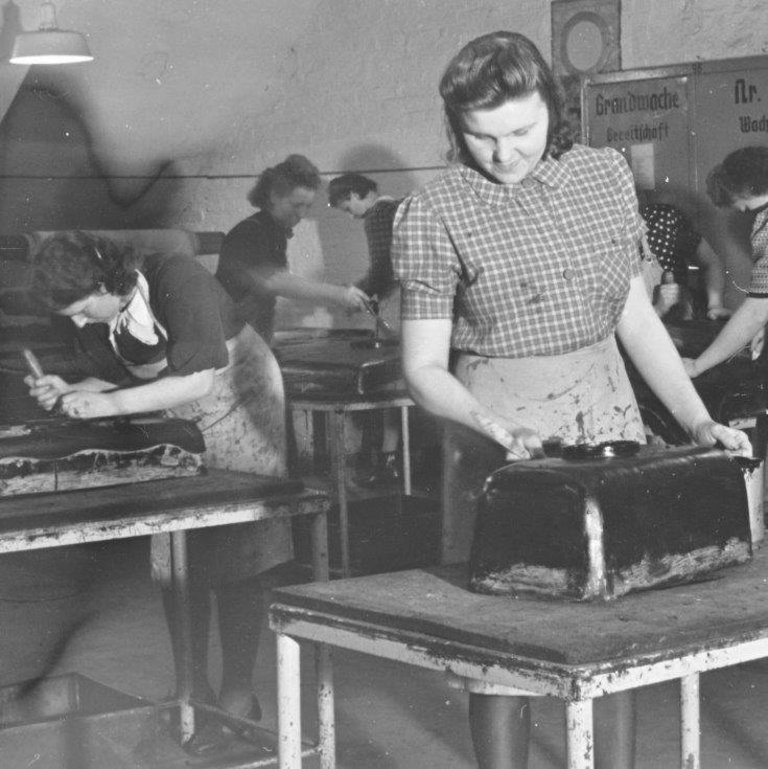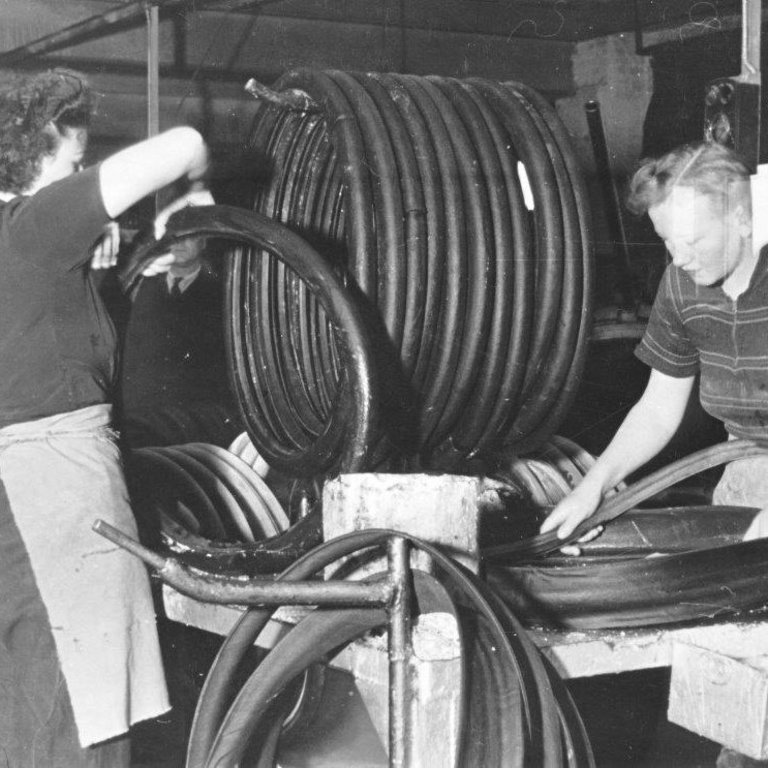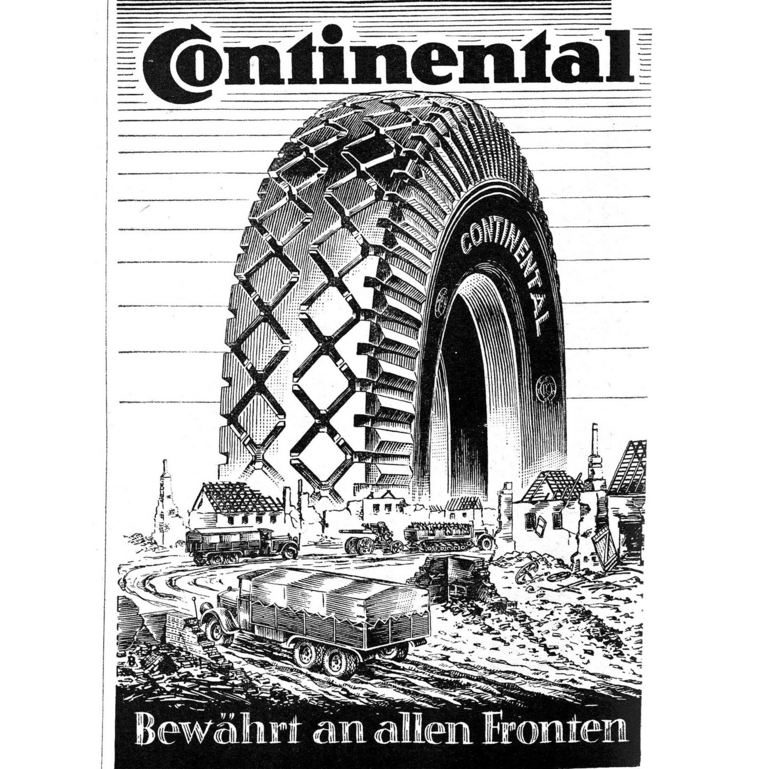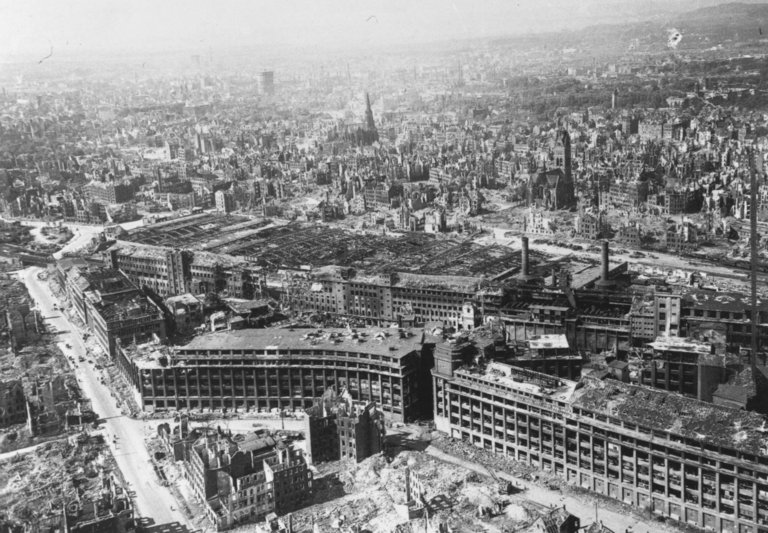1933 to 1945
From 1933 to 1945, Continental is becoming an important supplier of the Nazi armaments and war industries. The corporate culture is shifting from a liberal company to a model Nazi enterprise.
Following the seizure of power by the Nazis, the corporate culture at Continental shifts from a liberal, internationalized company with a strong labor union presence to a model Nazi enterprise. The Nazi ideology of allegiance is celebrated during factory roll calls, at Mayday celebrations and in the newly established company newspaper. In accordance with the new political conditions, supervisory board members and executives with a Jewish family background are compelled to resign or waive re-election.
Even before the start of the Second World War, Continental manufactures products for the armaments industry. Initially, however, this business plays only a marginal role. The company's main focus is the production of innumerable consumer goods for everyday use. In addition to tires, products include pacifiers, toys, gloves and shoe heels made of rubber, soccer and tennis balls, as well as hot water bottles and surgical bandages.
The National Socialist Four Year Plan creates a network of highly specialized small, medium and large-scale companies that are either highly specialized or else work on high-volume technical production, as is the case with Continental. As a supplier industry, these companies form the backbone of the Nazi war economy and are a key factor in its initial success. Continental integrates seamlessly into the Nazi war economy and switches its focus to the essential armaments products. The company produces passenger-car, truck, motorcycle, bicycle and aircraft tires, gas masks, V-belts, shoe soles and tank tracks. The company profits considerably from the Nazi's mobilization and armaments policy.
During the war, day-to-day work is characterized by coercion to perform at work, extended working hours up to 60 hours a week and pressure to achieve the required production targets. In these years, Continental also uses forced labor in production. The working and living conditions of some 10,000 people, including Belgian and Danish contract workers, French prisoners of war, Dutch forced laborers, workers from Eastern Europe and concentration camp prisoners, are inhumane.
Until the end of the war, the Continental factories are the target of heavy air raids. The parent factory in Hanover-Vahrenwald is almost completely destroyed.
Continental has commissioned a comprehensive scientific study on the company’s involvement with the Nazi regime. The study was conducted by corporate historian Professor Paul Erker and is entitled “Zulieferer für Hitlers Krieg. Der Continental-Konzern in der NS-Zeit” (Supplier to Hitler’s War. The Continental Group in the Nazi Era)” It is published in German (English in the year 2022) by de Gruyter Oldenbourg.
